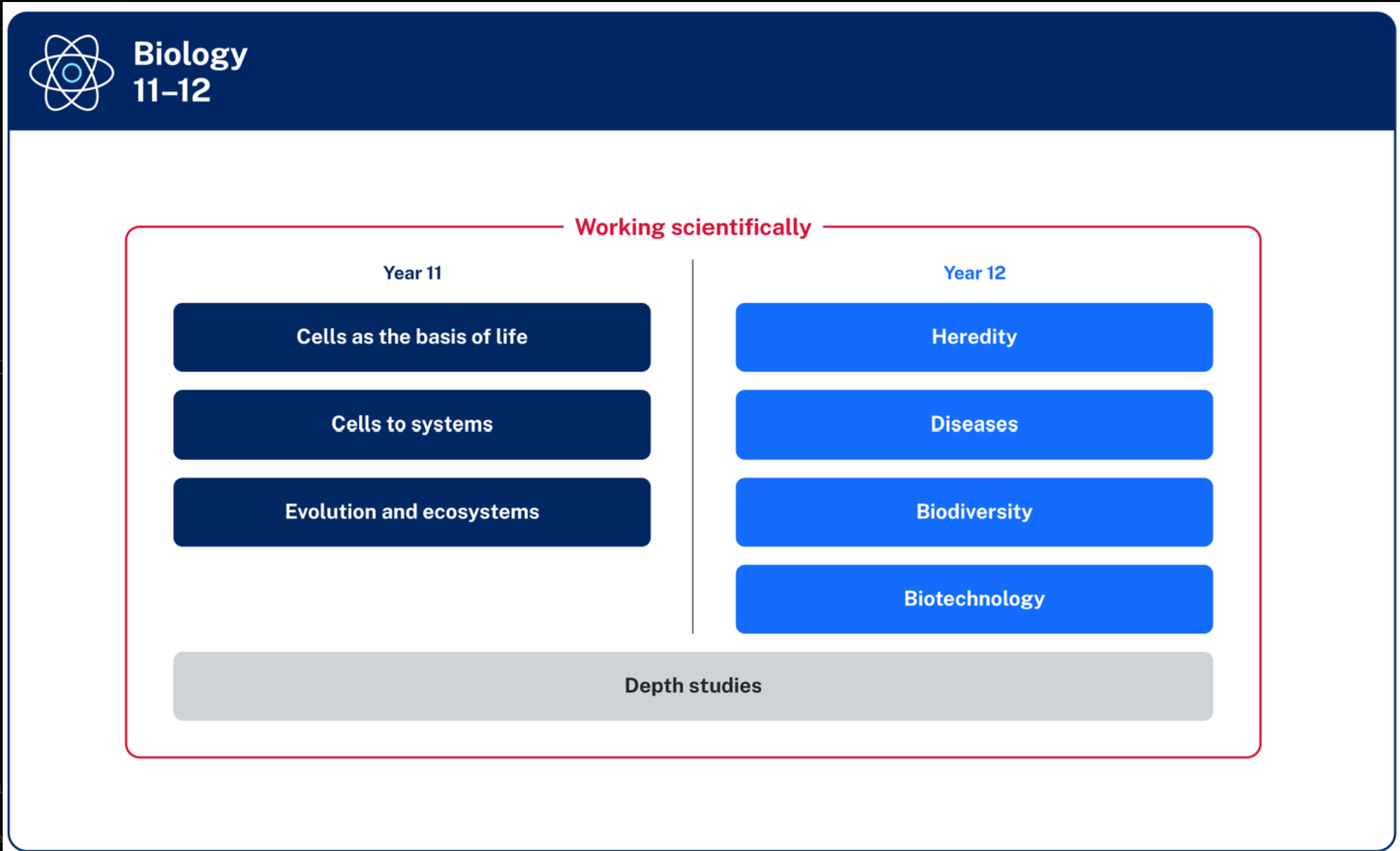
What’s Changed in the New 2028 Biology Syllabus
The new Biology syllabus, set to be implemented in 2028, brings several key changes to the course structure, offering a more integrated and modern approach to learning. Here’s how the new syllabus compares to the previous one:
Year 11 Course:
Old Syllabus (2017):
Module 1: Cells as the Basis of Life
Module 2: Organisation of Living Things
Module 3: Biological Diversity
Module 4: Ecosystem Dynamics
New Syllabus (2028):
Cells as the Basis of Life
Cells to Systems
Evolution and Ecosystems
What’s Changed?
The new Year 11 syllabus consolidates the original focus areas and introduces a more integrated study of biology. The former “Organisation of Living Things” module is now merged into the broader focus on Cells to Systems, which helps students understand how cells form the basis of more complex biological structures. The addition of Evolution and Ecosystems in the new syllabus creates a stronger focus on ecological principles and evolutionary biology from the outset.
Year 12 Course:
Old Syllabus (2017):
Module 5: Heredity
Module 6: Genetic Change
Module 7: Infectious Disease
Module 8: Non-infectious Disease and Disorders
New Syllabus (2028):
Heredity
Diseases
Biodiversity
Biotechnology
What’s Changed?
In Year 12, the new syllabus streamlines the content by combining the modules on Genetic Change and Non-infectious Diseases into broader categories. The new Diseases module encompasses both infectious and non-infectious diseases, providing a more holistic approach to understanding health and disease. Biodiversity and Biotechnology are introduced as separate modules, reflecting the growing importance of biotechnology in fields like medicine and agriculture, as well as the need for conservation in an increasingly threatened world.
Summary of Key Differences:
– More Streamlined Structure: The new syllabus is more streamlined, with fewer modules that integrate related concepts. This reduces fragmentation and creates a more cohesive learning experience.
– Emphasis on Biotechnology: The new syllabus places a larger emphasis on biotechnology, reflecting its increasing relevance in modern biology.
– Evolution and Ecology: The integration of evolutionary biology and ecosystems into the
– Health and Disease: The revision of disease-related modules combines infectious and non-infectious diseases, reflecting current health challenges.
Mary Diamond

